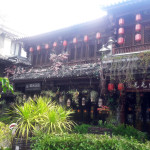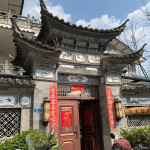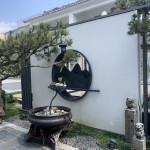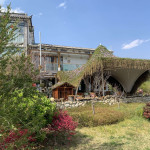I went to China out of duty. I had been many times before but not really enjoyed it much, and had managed to avoid going for the last twelve years. This time I had no choice. So I went, resigned to endure but not to enjoy. To my surprise I loved Dali, where I had not been before, and am going back next year. Even Beijing, a place I used to find oppressive, was more than tolerable.
So, what’s changed? The people and the cleanliness for a start. The Chinese used to be a rough lot, not exactly nice. Horrible really, inconsiderate, hawking and spitting, pushing and shoving. But not now. Most of them are sweet, smiley and welcoming. And based on Dali and Beijing, China is now cleaner than Britain. Even their public toilets.
You need a visa to go and it's not cheap at £130 (tourist). If you use a private agency double that, but it will save you from having to go to a visa centre (London, Manchester, Edinburgh and Belfast).
You need to submit flight confirmations and hotel bookings for your entire trip with your passport. We had no fixed itinerary so no hotel booking, but a member of the consular staff quietly advised us to book a room on booking.com - and then cancel it when the visa was issued. Which is exactly what we did. It takes two or three days for the visa to be processed. You can go back and collect your passport, or you can have it posted to you.
We flew British Airways (BA) premium economy, booking the tickets five months in advance to get good prices. I’m a Gold Card holder for life, used to flying business class (when somebody else was paying), but I could not justify the more than £2,500 extra this would have cost. The flight to Beijing is longer now, 10 hours 45 minutes out and 12 hours 20 back to avoid Russia. We had no complaints. The flights were on time, the food edible and the cabin crew efficient and attentive.
The main destination was Dali, Yunnan province, southwest China, a four-hour flight from Beijing’s Daxing Airport. Waiting for the flight we were surprised by acts of kindness rare in airports: a young woman left her electronic shop unattended to walk the length of the terminal to see if a computer connection would work. Next, a lounge employee saw that my wife was walking with a limp and ordered one of those trolleys that carry cripples to the aircraft for us. And on arrival at Dali there was nobody there to meets us – he was waiting at the wrong gate - and we had no phone signal. Another young woman offered to let use her phone. Problem solved.
Proficiency in English is still not common outside of big hotels and tourists might struggle to communicate, fun for the adventurous but a nuisance to others, so install a translation app on your mobile. Also, Chinese menus do not translate well so get one with pictures and hope for the best.
Few taxi drivers speak any English and will probably not recognise names like Hilton, Hyatt or Waldorff Astoria. Get the name and address of your hotel in Chinese in advance and carry it with you everywhere you go. Always carry your passport with you as many places require ID for entry.
A few words on Chinese. China’s official language, putonghua (common tongue), is derived from the old Court language used by the emperor’s bureaucrats, the Mandarins, and is compulsory in all schools. But there are many other languages and dialects, such as Shanghainese and Cantonese, which are not easily understood by a native putonghua speaker from Beijing. The writing, hieroglyphs or pictures, are understood by all literate Chinese regardless of their language, even if they pronounce them differently, and is romanised by the Hanyu Pinyin (‘Chinese spell out sound’) system (I prefer the older Wade-Giles method, which is easier for English speakers). You can also download apps to translate Pinyin into English.
Chinese is a tonal, not a syllabic, language. Changing tone changes meaning. I have a Northeast accent, and say grass, bath and bus. Southerners say grarss, barth and bas, but we understand each other. It doesn’t work like that in Chinese. Ma can mean mother, horse, hemp, to scold, or a spoken question mark, depending on how you say it. The tones are difficult for us to get right, but all Chinese will understand the following simple phrases:
Hello; Ni hao (knee how). How are you? Ni hao ma. (Ni is you, hao - how - is good, and ma in this case the spoken question mark. Adding ma turns any sentence into a question.
Is that ok? Hao bu hao (good not good, bu is said as boo). Ma can also be added. Hao. Good. Bu hao; No good.
Thanks; xiexie. (Hsiehsie in the more accurate Wade Giles system. Combine the h and the s.) Thank you (more formal) Xiexie ni.
I - wo (woe). We - women (woemun - the men is pronounced as a sharp mun.
He, She, and it - ta. The character for a man 男 represents strength in the rice field, that for a woman 女 a bowing figure serving something. That for peace is a woman under a roof 安, giving rise to the old joke that the character for war is two women under a roof.
Want - yao (yaow - a bit like the Brummie for you. Also rhymes with cow.) I want is wo yao. I want to drink tea is wo yao her cha. Bu yao is not want.
Have is you, pronounced to rhyme with go, or bow as in bow and arrow. One of the first phrases any foreigner (laowei - lao rhymes with cow, wie with why) learned in the 70s and 80s in China was mei you, not have (mei is not, rhymes with may). To ask if they have something, use you mei you (have not have. Ma can be added). Have you any tea would be Cha you mei you (ma). Though that might not be enough as there are so many kinds of tea. Black tea is Hong cha (hong meaning red).
I am - wo shi (sher). My name is Tom, Wo shi Tom.
You might be asked where you come from (Ni cong nali lai). You can answer by saying simply Yinguo (guo- gwo; country). England, Britain, interchangeable in Chinese, or you might say wo shi Yinguo lai, I am from England, or wo shi Yinguo ren - I am an English (British) person.
China is Zhongguo (Central country), the US Meiguo, France Faguo and Germany Deguo. Greece is Xila - the light of the west.
Paying for things can be tricky. Locals mostly simply point their mobile phones at the vendor’s QR code, on display even on market stalls and street food seller’s carts. You need an ‘app’ though, and money in it. These are available at international airports. Your credit/debit card might not work. On the other hand, it might. Mastercard is more likely to work than other cards. The Chinese government discourages the use of cash, but it is usually accepted. The best exchange rate is through your credit card, next the Bank of China, then at Daxing Airport. The worst is Travelex Heathrow.
You should be able to make calls, send and receive text messages. Beware of roaming charges. WhatsApp will not work, and neither will your Gmail account unless via a VPN. Everywhere has wifi, and the mobile signal coverage puts Britain to shame, with a full signal even on top mountains outside Dali.
You can connect to the internet, but much content is blocked. We could connect to British Airways but not the BBC. No loss there, but it is all a bit of a lottery. We could get the Daily Telegraph, but not the Times. The Daily Mail came out in a hard to navigate format. The US version of the Spectator was permitted, but not the British one. Google didn’t work, but Microsoft Edge did. Expect to see a lot of this: 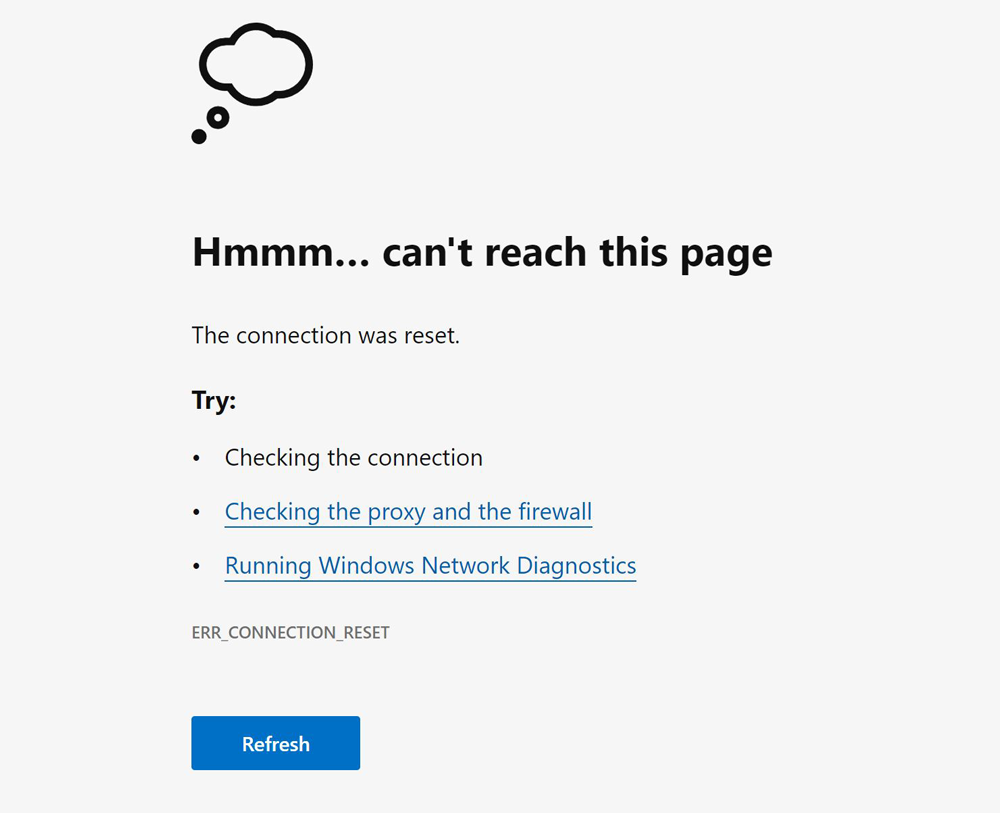
China used to be scruffy. Not now. I’m ashamed to say that it is cleaner than Britain, possibly due to covid, and the decline in public standards here. The streets were spotless, with no litter, potholes, or endless roadworks. Shops, hotels and restaurants were immaculate. Even the toilets were clean. Public toilets in China were foul, dangerous places. You could fall in and drown. But to my surprise the plentiful public toilets are now far cleaner than those few that still exist in Britain. You might have to squat though, but they do have toilets for all eventualities.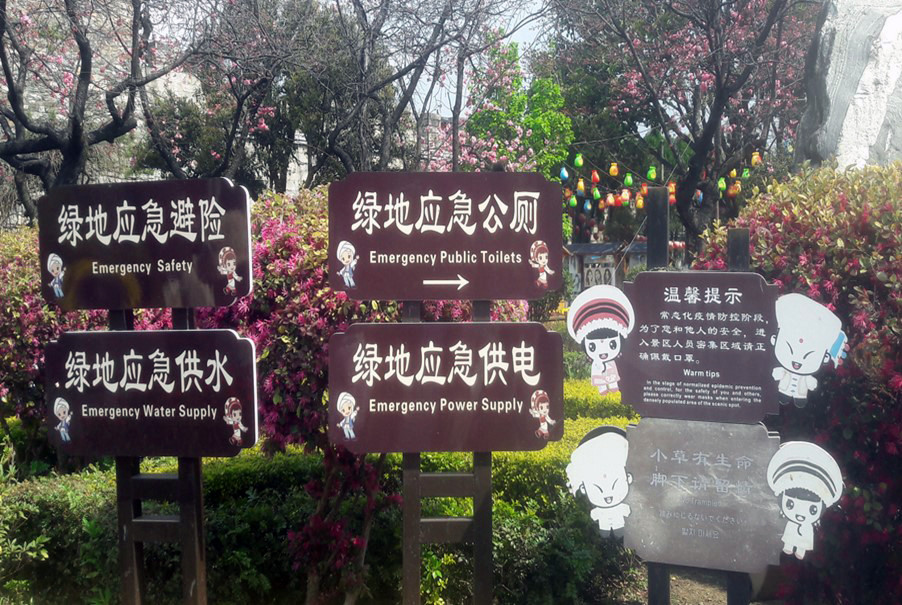
This emergency toilet was giving off a strong smell of hashish when I used it.
The Chinese hoi polloi used to be horrible. You would regularly see pretty, well-dressed and fashionable girls hawking, spitting and emptying their noses in the street. And while cheerful, they were inconsiderate if they didn’t know you. That’s all stopped. In the time we were there I didn’t see one gob of spit and there is a marked improvement in people’s behaviour, possibly because of a campaign carried out by central and local government, and omnipresent propaganda posters telling folk how they should behave themselves. it seems to have had the desired effect though.
Friends had promised to drive us around, which worried us before arrival. Not so long ago the standard of driving was appalling, often suicidal. That has also changed, being about the same as in Greece now. You do not need a license to drive one of the many small electric scooters you see, often driven by youngsters of 14 or 15. Not one in fifty wears a (compulsory) helmet.
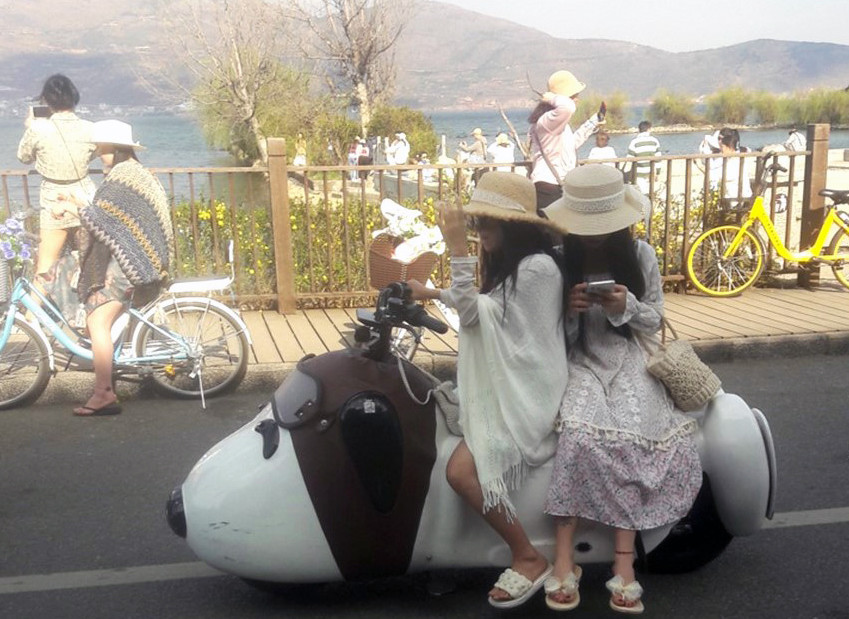
About 20% of the cars are electric. Electricity is, of course, much cheaper in China than in Britain; one fifth or less per kWh than here. Friends with a two-bedroom all-electric flat said that they paid an average of about £15 per month. If you want to know why manufacturers have abandoned Britain, look no further. Petrol is less than a quid a litre.
Dali seemed to be doing all right economically, possibly because of the large number of tourists and the student population. China generally is not doing so well and many young people are unemployed. The State pension is not generous, though things are generally cheaper than UK and there is no council tax, many struggle.
China is no doubt an authoritarian dictatorship, but in Dali at least free of the oppressive, miserabilist, petty-fogging, nit-picking obsession the British bureaucracy has of enforcing petty rules and dishing out fines at every opportunity. In Dali they not only ignore rules on wearing crash helmets, but also park where they like. I didn’t see any parking meters or speed cameras. Not one. I didn’t see a single policeman either.
And yet Dali is very safe. We walked around late at night and never felt even the slightest bit uncomfortable let alone threatened. You are more likely to get your ear picked than your pocket.
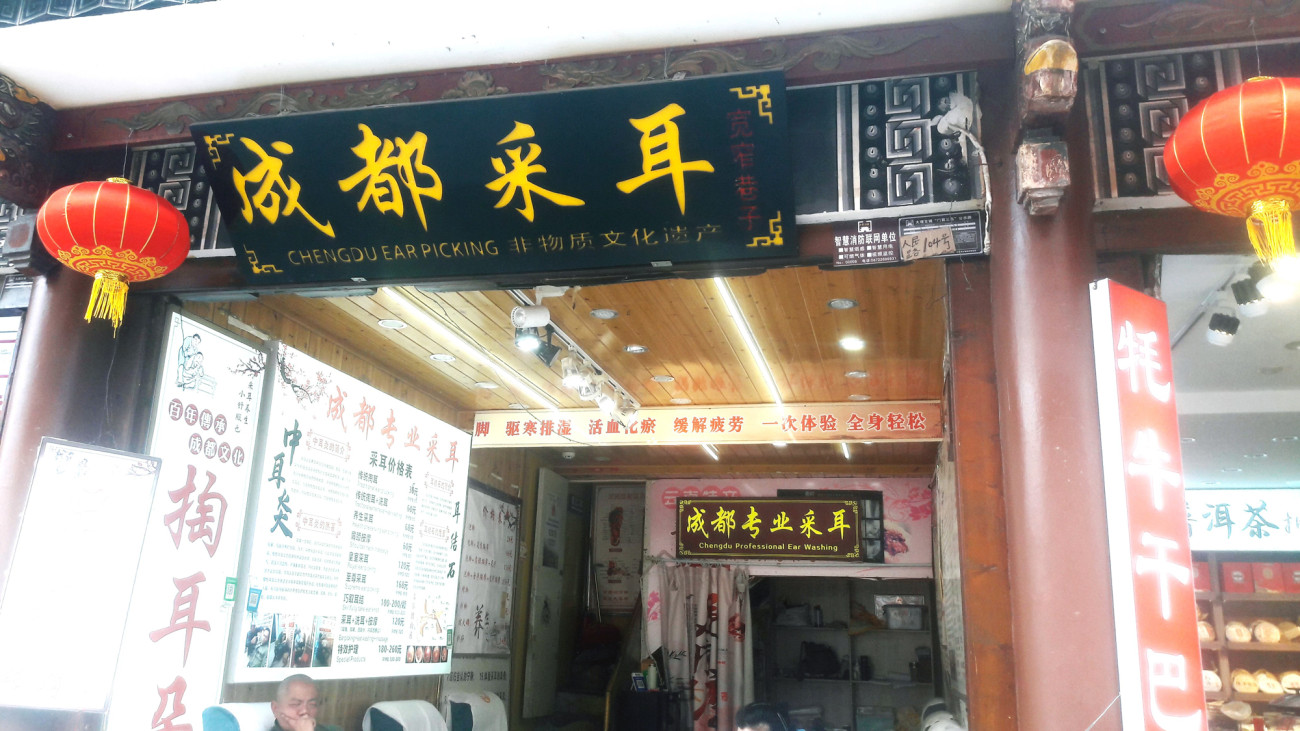
Beijing is a different matter however, with a heavy police presence in the main shopping street, Wangfujing. Tiananmen Square (the square of the gate of heavenly peace) was fenced off and police were only allowing people in after an identity check. You must now book to get into the Forbidden City. We got a taxi from Daxing Airport into the centre of Beijing (£23 for a one hour and 15 minute journey) and had to go through a police road block to get into central Beijing. it is, however, very safe. There is a train from the airport into central Beijing, but you must go through airport-type security to get on it, and then you have to find a taxi to take you to your hotel. Better to get a taxi at the airport where there might be a dispatcher who speaks a little English.
We looked at several good hotels ranging from ¥460 to ¥800 (£53 to £92) a day, the latter a large two-bedroom suite. If you go to Dali and would like tips on hotels, let me know in the comments and I’ll be happy to oblige. (The Chinese currency is the Yuan, often referred to as renminbi (people’s money). The Bank of China rate was ¥8.7 = £1).
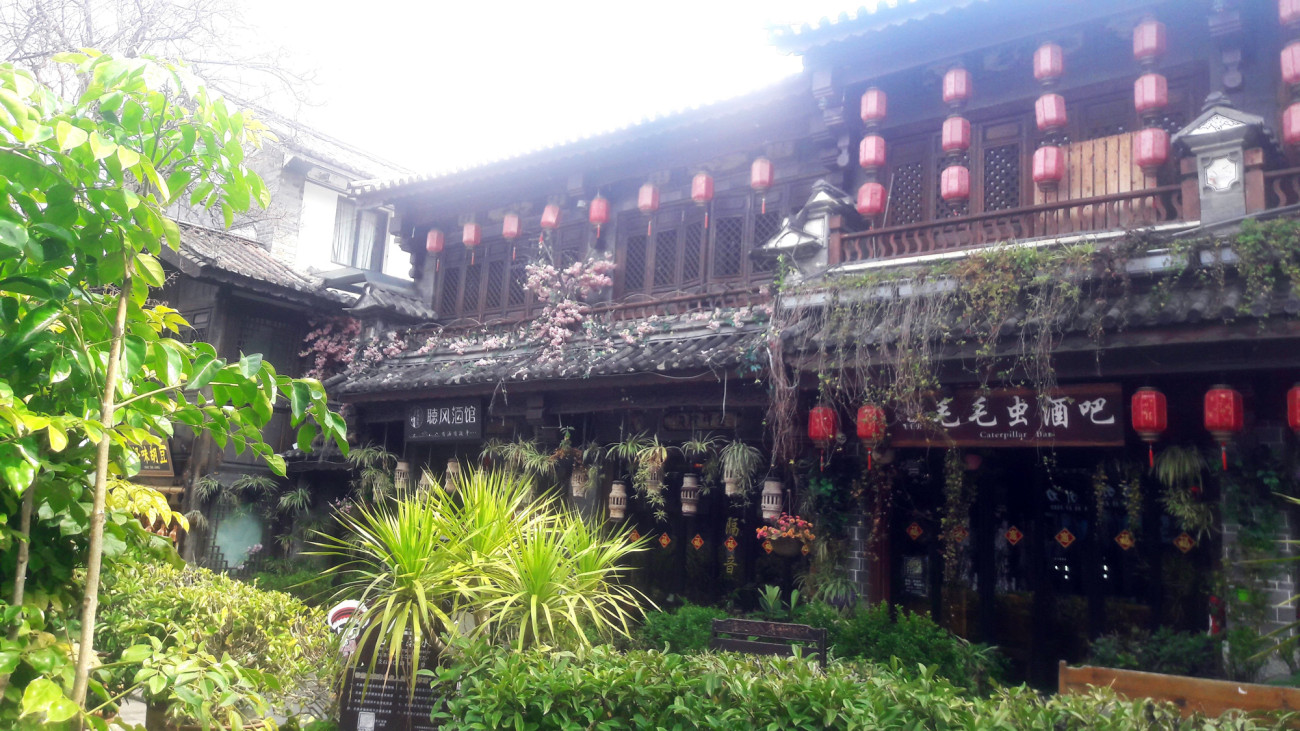
Turning to food, - and it’s never too long before they turn to food in China, where life is centred around eating - it’s not too extreme to say that the Chinese are obsessed with food. Really, there is no such thing as Chinese food, that’s like taking about ‘European’ food. Chinese food has at least as much variety as European, probably more. Dali’s restaurants and street food stalls cater to all tastes, from MacDonald’s street stalls selling deep fried crispy scorpions, sea horses on a stick, grubs, beetles and locusts. Those of a delicate disposition might want to look away now.
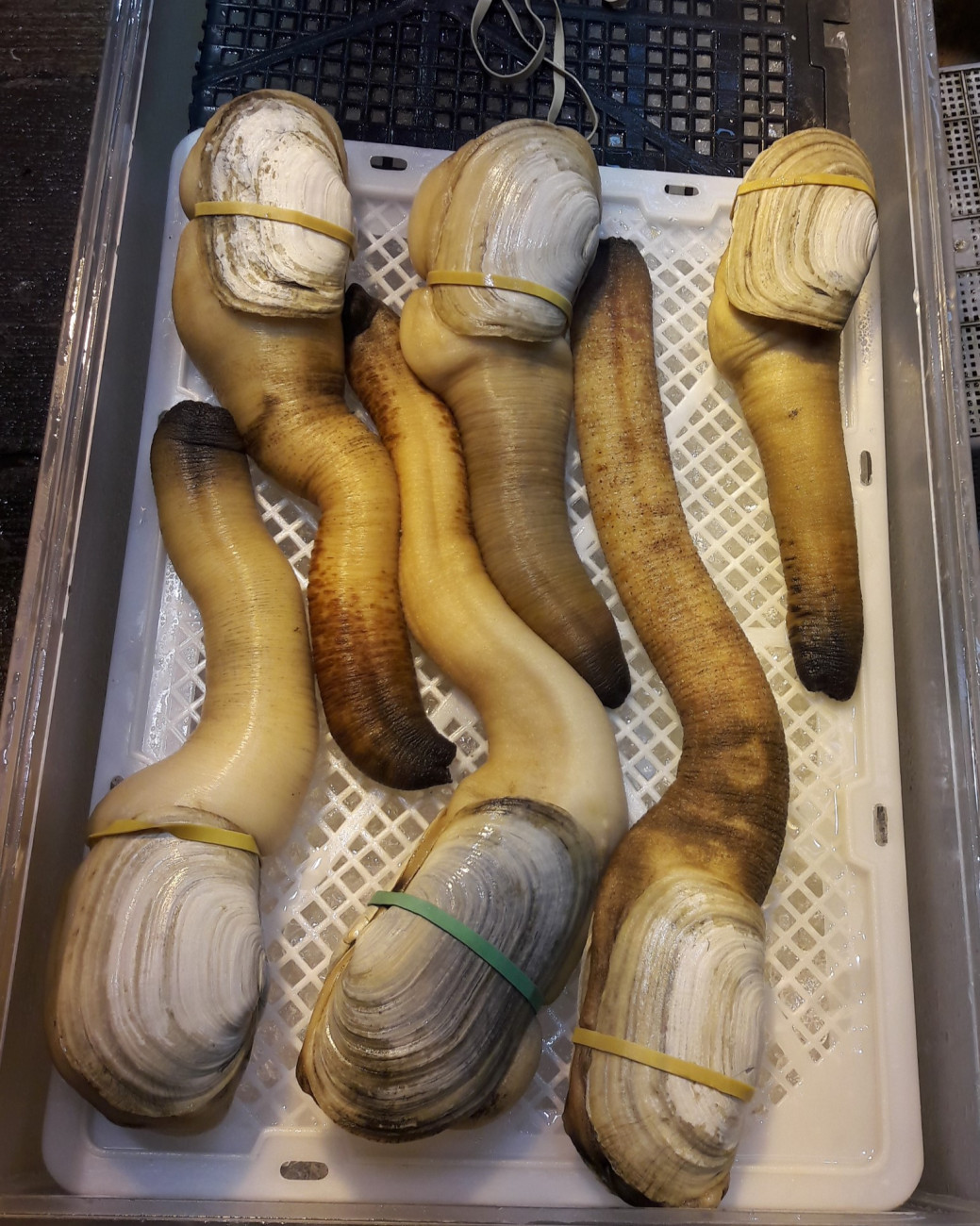
No. They are not what you think.
And this
Yes, they are scorpions. In fairness, none of the Chinese we know would eat them either. There is obviously a market for them though, the grubs, locusts and other insects pictured above all being sold on a street stall.
But of course, most Chinese food is excellent, just stay away from the special stuff and stick to everyday food.
